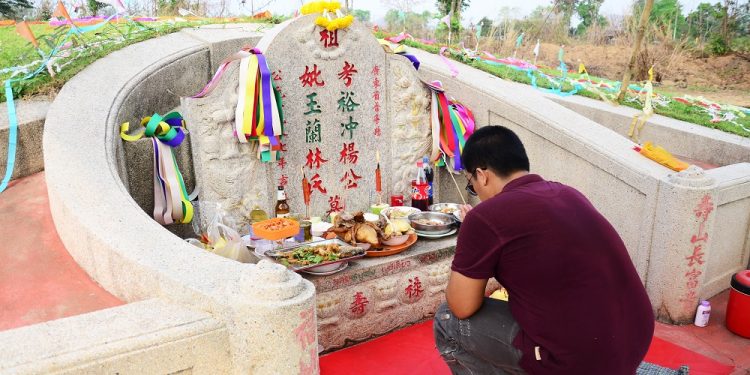
Qing Ming Jie
Qing Ming Jie, otherwise known as Tomb Sweeping Day, Ching Ming Festival, Chinese Memorial Day, and Ancestors’ Day, is a holiday celebrated in China on the first day of the fifth solar term in the Chinese lunisolar calendar. This means it falls on the 4th or 5th of April on the Gregorian calendar. This day—and its accompanying festival—is a time when people go out to enjoy the spring weather, but it is also a time when people venerate their ancestors.
History
The origin of this holiday can be traced back to a legend involving Jie Zitui—a man who lived in the Shanxi Province in the seventh century BC. According to this legend, this man cut a piece of meat from his own leg to feed his starving lord after the lord had been forced into exile.
When the lord returned about two decades later, he had forgotten the sacrifice that Jie Zitui had made for him. Later, after the lord had ascended to the throne, he remembered the deed performed by Jie and decided to reward him. Unfortunately, he wasn’t able to do so because Jie had decided to become a hermit and hid in a cave in the mountains with his mother.
However, the lord wasn’t dissuaded in his quest to properly reward Jie Zitui. He decided to have the mountain set on fire to force Jie to come out of his self-imposed exile. This plan didn’t work. Jie refused to come down from the mountain and was consequently burned to death.
After learning of Jie’s death, the lord decided to honor this man. He did so by proclaiming that all the fires in the province be put out and that the people only consume cold food on this day. This started the Cold Food Festival. Eventually, this day would be replaced by the Qing Ming Jie festival.
Customs, Traditions, and Celebrations
One of the most important rituals performed on Qing Ming Jie is the practice of tomb sweeping. This is when people clean the tombs of their ancestors and pay homage to them. During this ritual, a tribute is paid to the deceased relatives. This tribute often involves providing the deceased with their favorite food or wine.
Another practice common during Qing Ming Jie is the flying of kites. All throughout China, people head out with their most colorful kites and spend the day flying them. After the kites are flown, the string is then cut, and they are allowed to fly away; thus concluding a successful holiday.








